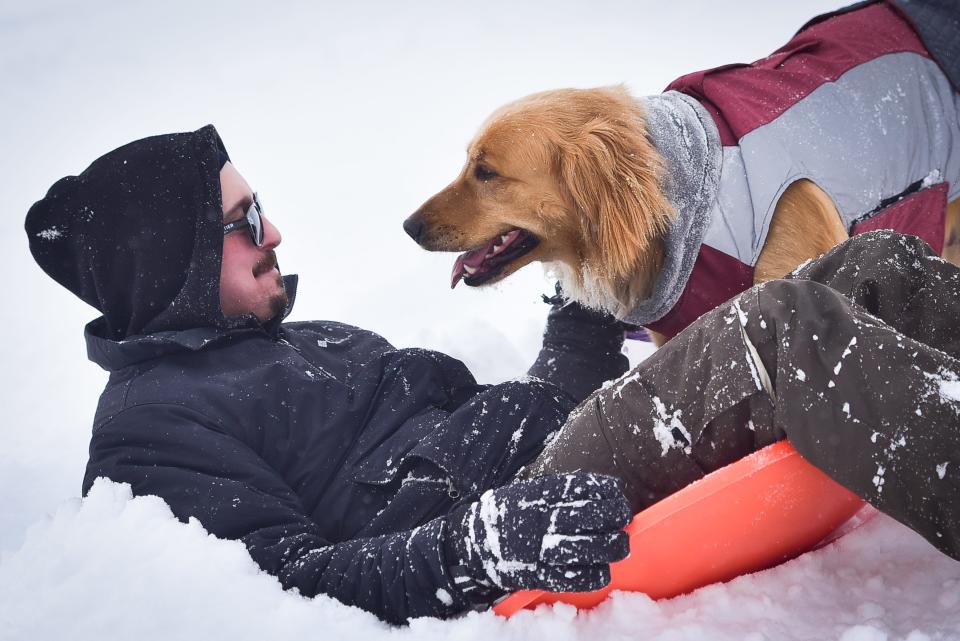8 tips on keeping your pets safe during a cold Mohawk Valley winter
With frigid temperatures still expected later this week, Oneida County Sheriff Robert Maciol and Central New York SPCA Chief Investigator Bill Pulaski are advising area residents to look out for their pets during cold weather.
"Pets feel the cold much like we do," Maciol said in a statement. "People will want to cozy up inside where it's warm, and although they cannot tell us, our pets want the same."

How much snow has fallen in New York?Storm totals for every region
More: Doggy daycare business opens in Frankfort
Pulaski and Maciol offered the following tips for caring for pets during cold weather:
Provide choices: Pets prefer comfortable sleeping places and may change their location based on their need for more or less warmth. Give them safe options to allow them to vary their sleeping place.
Stay inside: It is a common belief dogs and cats are more resistant than people with cold weather because of their fur. But just like people, cats and dogs are susceptible to frostbite and hypothermia, and should be kept inside.
Check the paws: Check your dog's paws frequently for signs of cold-weather injury or damage, such as cracked paw pads or bleeding. A sudden lameness may be due to an injury or may be due to ice accumulation between their toes.
Clothing: If your dog has a short coat or seems bothered by the cold weather, consider a sweater or dog coat. Use a dry sweater or coat each time your dog goes outside. Wet sweaters or coats can make your dog colder.
Wipe down: During walks, your dog's feet, legs and stomach may pick up deicers, antifreeze or other chemicals that could be toxic. When you get back inside, wipe down or wash your pet's feet, legs and stomach to reduce the risk your dog will be poisoned after they lick them off their feet or fur.
Pet-proof: Use space heaters with caution around pets. They can burn or be knocked over, potentially starting a fire.
Avoid ice: Stay away from frozen ponds, lakes and other water. You do not know if the ice will support your dog's weight, and if your dog breaks through the ice it could be deadly. If this happens and you try to save your dog, both your lives could be in jeopardy.
Recognize problems: If your pet is whining, shivering, seems anxious, slows down or stops moving, seems weak or starts looking for warm places to burrow, get them back inside quickly. These are signs of hypothermia. Frostbite is harder to detect, and may not be fully recognized until a few days after the damage is done. If you suspect your pet has hypothermia or frostbite, consult your veterinarian immediately.
This article originally appeared on Observer-Dispatch: 8 tips to keep your pet safe in a cold Mohawk Valley winter

